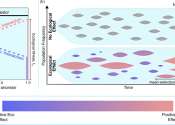Interplay of sex, marital status, education, race linked to 18 year US lifespan gap
The interplay of a quartet of sex, marital status, education, and race is linked to an 18 year lifespan gap for US citizens, and while no one factor is more influential than any of the others, the more of these influential ...
Aug 5, 2024
0
14









